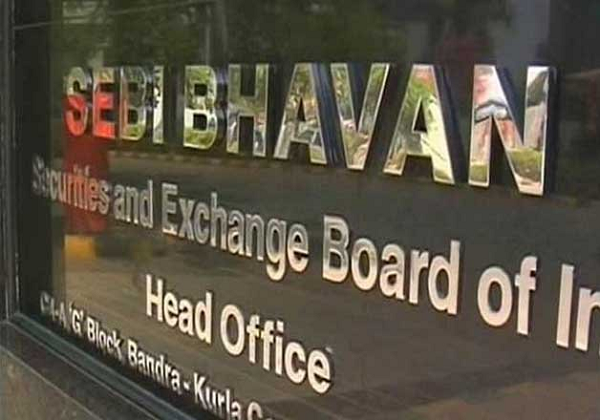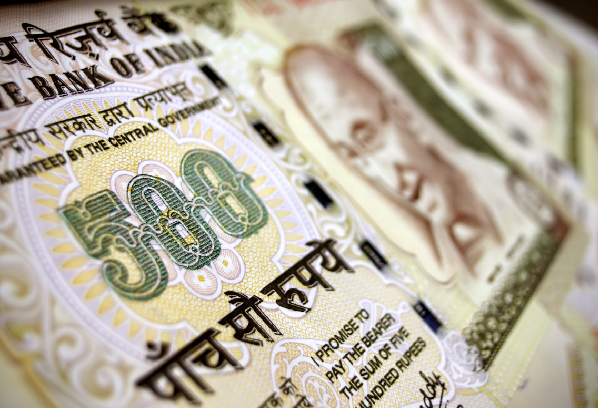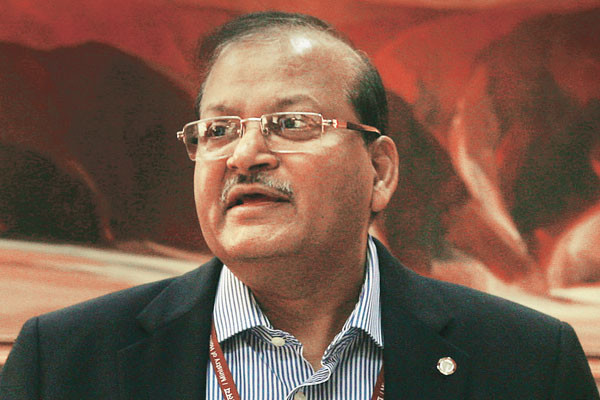
by admin | May 25, 2021 | Investing, Opinions
 By Meghna Mittal New Delhi, (IANS) Breaking new ground in a bid to help civic bodies raise capital for financing infrastructure projects, three such entities will soon issue bonds on a pilot basis, according to a top finance ministry official.
By Meghna Mittal New Delhi, (IANS) Breaking new ground in a bid to help civic bodies raise capital for financing infrastructure projects, three such entities will soon issue bonds on a pilot basis, according to a top finance ministry official.
“The framework and guidelines on municipal bonds are already in place. And now we have three projects that are going through. This will have to be done by the Ministry of Urban Development. They are taking up three cities. If the pilot succeeds, then it gets rolled out (on a wider scale),” the finance ministry official told IANS on condition of anonymity.
Market watchdog SEBI’s regulations for municipal bonds have been in place for one-and-a-half years, but there’s been no further traction beyond that. The pilot in three cities is being seen as an effort to encourage local bodies to sell bonds to the public.
One other intention is to reduce the reliance of civic bodies on banks, which have largely become risk-averse in view of their rising non-performing assets (NPAs).
Speaking on the size of the bonds, the official said that the pilot issue will be sufficiently large as the overheads involved are high.
A conducive bond market and supportive private sector will support the pilot, he said.
Though the cities chosen for the pilot have not been disclosed, a source in the finance ministry spelt out the criteria: “The municipal bodies should have (a sufficient) budget in hand and the capacity to do this (execute large projects). It could be (through) a special purpose vehicle (SPV) kind of arrangement that is commercially viable, preferably through PPP (public private partnership) mode.”
The official said that since all municipalities may not have the do-it-all strength on their balance sheets, the guidelines offer various options in structuring.
As for the modalities, an escrow account will be created for a particular infrastructure project. Some of the municipal taxes may be earmarked for a particular project or cross subsidy may be given for taking up a project in a slum area, the official said.
“Most important, they have to decide for which project it (the money) is going to be,” he said.
A credit rating system for infrastructure projects is also being worked upon, which will be in place this year, the finance ministry official said.
“We are working on the rating project. The system will be in place this year. We are in discussion with credit rating agencies for a new system,” he said.
Credit rating agencies like Crisil and India Ratings are collectively working on a new system for infrastructure projects that will use a different methodology than for corporate ratings.
(Meghna Mittal can be reached at meghna.m@ians.in)

by admin | May 25, 2021 | Economy, News, Opinions
 By Meghna Mittal, New Delhi, (IANS) As a wide section of Indians get used to paying bills and shopping online through internet banking or credit cards, here comes another mode of payment that has remained in the shadows so far.
By Meghna Mittal, New Delhi, (IANS) As a wide section of Indians get used to paying bills and shopping online through internet banking or credit cards, here comes another mode of payment that has remained in the shadows so far.
You can now pay your mobile or DTH bill through the digital currency, Bitcoin. Online shopping and utility bill payments via the virtual currency should be available soon.
“Users are increasingly using Zebpay to pay their mobile bills using bitcoins and to buy vouchers for online shopping. Last month, users paid bills of more than Rs.15 lakh using bitcoins. This number is doubling every month,” Sandeep Goenka, co-founder of Bitcoin mobile app-based platform Zebpay, told IANS.
Bitcoin is a digital currency not produced by any government or statutory authority. It’s generated by encryption techniques using peer-to-peer technology to operate. It has the power of infinite divisibility, which enables its use for tiny online transactions.
The total number of Bitcoins is limited as its global supply has been fixed at 21 million by its founder, who has remained out of sight. Nobody owns or controls Bitcoin and everyone can take part in it.
When a user wants to pay for a bill of, say, Rs.500, the bitcoins from their Zebpay wallet are transferred to the company at the current bitcoin price. Zebpay then pays the amount in rupees to the mobile carrier companies. For the user, the process is instant.
By the year end, Zebpay plans to expand services to payment of broadband, electricity and landline phone bill, Goenka said.
Bitcoin’s legal status varies from country to country. In India the Reserve Bank of India (RBI) maintains that the digital currency is under observation. But it has neither been banned nor is it regulated.
“Unregulated does not mean it is illegal, just that there are no specific laws for this new technology. It is legal to buy and sell bitcoins under all existing laws,” Goenka said.
At present, only the state of New York in the US has started giving licences for bitcoin trading. The NYSE (New York Stock Exchange) also has an official bitcoin index. Russia, though, has moved to ban it.
Each bitcoin’s value now is around Rs. 30,000, having rallied over 100 percent within a year. The price of bitcoins depend on demand and supply, just like the price of shares. The bitcoin exchanges publish prices, which are influenced by factors including international rates, liquidity and trading patterns.
“Like gold, there is a finite supply of bitcoins at 21 million. Bitcoin was modelled in several ways after gold: they are both scarce, and it is impossible to artificially inflate supply,” Jincy Samuel, COO and Center Head, Coinsecure, told IANS.
But if bitcoins are likel gold, how do you mine them?
Well, you need huge computing power to mine a block of 25 coins. High-end hardware is required to process, but even then a solo effort perhaps would take up more in electricty cost — and depreciation — than the value of coin it will yield. Working alone, it could take up to three years or more to build a block.
That’s the reason why people join pools of “miners” putting together their computers and running the algorithms endlessly to produce a block.
Bitcoins are kept in digital wallets on the computer. If you lose the computer then the you lose the money.
With trading companies offering bill payments at a very low transaction cost of less than one percent, the virtual currency is being seen as an alluring proposition.
Coinsecure, a trade platform for the currency, said it is going to launch a service later this year which will allow the users to directly shop online in bitcoins.
“We will soon be launching our merchant payment gateway this year, which will allow mobile companies or anyone else to accept bitcoins at zero percent volatility risk. We will be charging one percent transaction cost, instead of 3-4 percent by credit card companies,” Samuel of Coinsecure said.
“We are in talks with the service providers for tie-ups to accept bitcoins and a lot of them are willing. We see a lot of online service providers, e-commerce companies and start-ups coming on board,” Samuel said.
The grey legal area for the digital currency creates concern, but like any new technology the laws are yet to catch up with it.
“Bitcoin operates on blockchain technology, which is an open ledger and offers full transparency. Flipkart and Ola were also not regulated earlier. It is only recently that the government has regulated e-commerce and defined marketplace. We are also a marketplace,” Kamesh Mupparaju, CEO of bitcoin trade exchange platform BTCXIndia, told IANS.
Blockchain is an open digital ledger that records all bitcoin transactions that cannot be altered.
The companies claim that fraud is unlikely with bitcoins as the entire operation is digital in nature, secured by strong encryption keys which guarantee the ownership of the currency.
“Bitcoin works on self regulation,” online portal Unocoin Co-founder and CEO Sathvik Vishwanath told IANS.
Unocoin has already about 2,000 average mobile and DTH bill payments taking place through its online platform. “In a month’s time we will launch insurance premium, electricity and water bill payments at zero percent transaction cost,” Vishwanath said.
The popularity of bitcoins has seen a sharp increase in India.
In its very first year of operations last fiscal, Zebpay crossed Rs.100 crore turnover. At the same time, BCTXIndia jumped from a mere Rs.4 crore turnover in 2014-15 to Rs.70 crore in 2015-16. Unocoin said it is expecting to grow by 10-20 percent per month.
China, where the currency is unregulated, like India, does a trade of more than Rs.10,000 crore in bitcoins every day. The trading amount in India is around Rs.500 crore per year, Goenka said.
That is likely to change quickly.
(Meghna Mittal can be reached at meghna.m@ians.in)

by admin | May 25, 2021 | Interviews

Shankar Aggarwal, Secretary, Ministry of Labour & Employment, Government of India
By Meghna Mittal, New Delhi, (IANS) In another move towards ease of doing business in India, the government is consolidating 44 labour laws into just four and the draft bills will be tabled in the monsoon session of parliament beginning mid-July, the top official in the labour ministry has said.
“We are realigning 44 labour laws into four. Out of that two are already ready — Code on wages is already with the cabinet, Code on industrial relations is with the Ministry of Law,” Shankar Aggarwal, Secretary, Ministry of Labour and Employment, told IANS in an interview.
Tripartite talks for the other two laws — one on safety and working conditions of workers and the other for their social security and welfare — will be held among the central and state governments, trade unions, and employers represented by the top industry chambers, he said.
“The bills for the four labour laws should be placed in the next session in parliament,” Aggarwal said at his office.
“Most of our labour laws are not in sync with the current times. For ease of doing business, the people via the new legislations will be able to do things like online registration and filing of returns,” said Agarwal, a 1980 batch officer of the Indian Administrative Service of the Haryana cadre.
“The consolidation will also facilitate manufacturers and entrepreneurs.”
One of the codes intends to unify wages of workers across the country among all sectors, while another seeks to amalgamate all laws pertaining to industrial relations. The third deals with social security, health insurance and pension, and the fourth on labour conditions.
The second National Commission on Labour had recommended that 44 central labour laws be broadly grouped into just four-five categories. The report of the Working Group on Labor Laws and other Labour Regulations for the 12th Five Year Plan had also recommended clubbing them together.
Once the new bills are framed and passed, it will lead to ease of compliance. Consolidating the different labour laws will reduce multiplicity and ensure better enforcement and compliance.
International Labour Organisation Director in India Panudda Boonpala said recently that a key theme in the debate on employment relations in recent years is the flexibility wished for by employers, along with security, benefits and protection that workers are entitled to.
“India is at a very crucial juncture in relation to bringing about labour law reforms. It is important that all stakeholders join in the discussion and arrive at a consensus that would be the best option for the country,” she said.
“Experience around the world suggests that new labour problems are solved neither by old forms of regulations nor by removing regulation, but by better regulation, and social dialogue is the best means to achieve this end.”
(Meghna Mittal can be reached at meghna.m@ians.in)

 By Meghna Mittal New Delhi, (IANS) Breaking new ground in a bid to help civic bodies raise capital for financing infrastructure projects, three such entities will soon issue bonds on a pilot basis, according to a top finance ministry official.
By Meghna Mittal New Delhi, (IANS) Breaking new ground in a bid to help civic bodies raise capital for financing infrastructure projects, three such entities will soon issue bonds on a pilot basis, according to a top finance ministry official.

